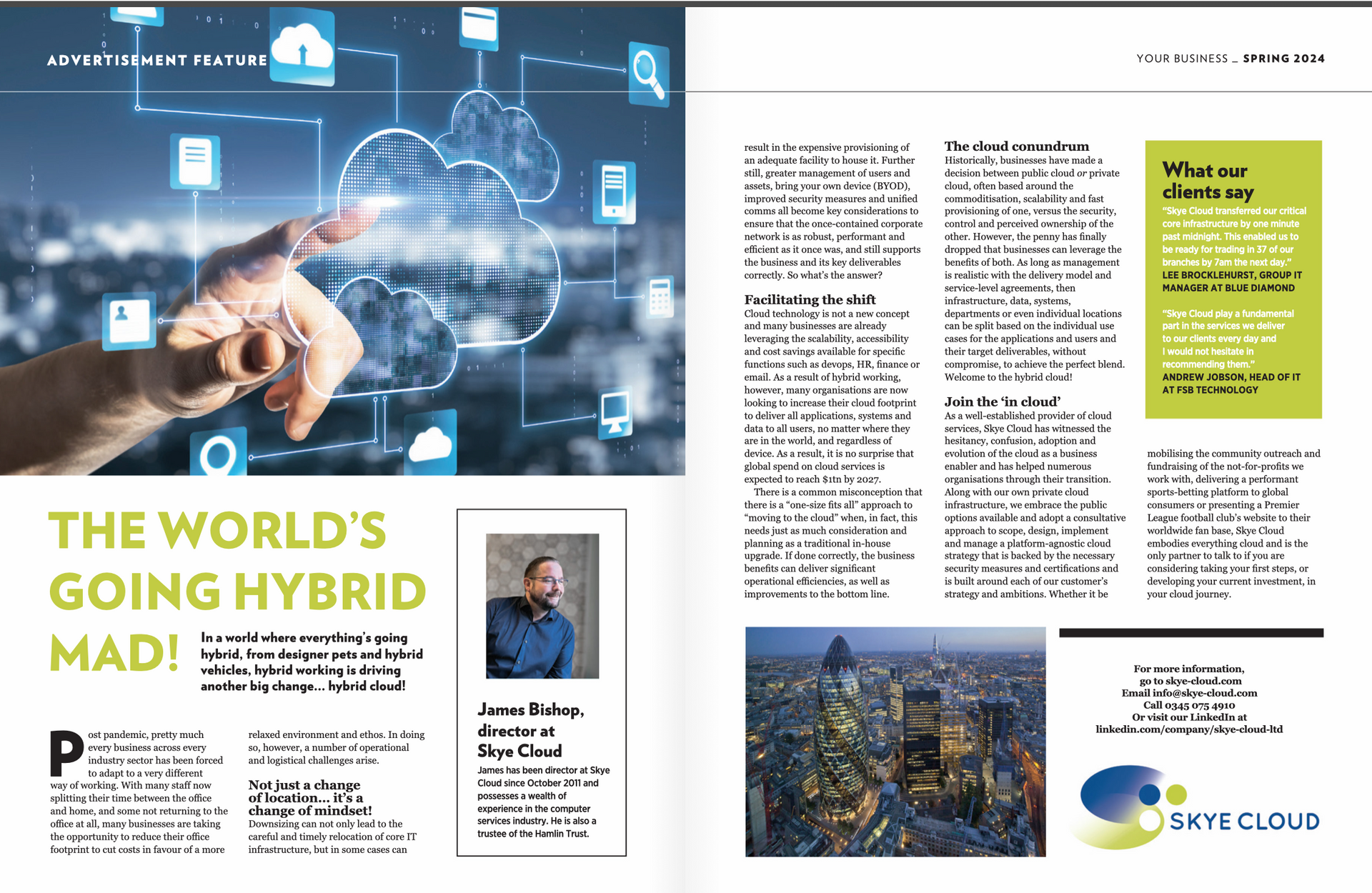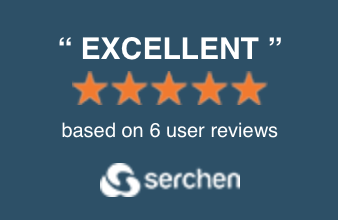Is A Hybrid Cloud Strategy Right For Your Business?
What is a hybrid cloud approach?
A hybrid cloud model is a solution that typically incorporates a combination of private and public cloud infrastructures interconnected via the means of proprietary software to provide orchestrated and managed communication between each computing environment.
One of the major business benefits of adopting a hybrid cloud strategy is that it enables workload mobility between each distinct environment thereby providing organisations and enterprise businesses with much greater flexibility when it comes to planning how best to deploy, manage and access data.
Hybrid cloud benefits in today’s climate
Providing secure and fast access for your remote workforce
The current climate has unsurprisingly driven significant demand for businesses looking for more effective and secure remote working solutions.
With many people forced to work from home, it’s essential that organisations provide accessible and operational computing environments for all employees to sustain business continuity whilst ensuring productivity and efficiency across the organisation.
Hybrid cloud environments provide organisations with the option to migrate any sensitive data to private servers whilst ensuring core services are readily accessible and available on a public cloud from any location, anytime.
Hybrid cloud models can therefore be particularly beneficial for organisations looking to leverage the best of both computing environments by offering flexible on demand access to key applications for their remote workforce whilst maintaining control over sensitive data.
Cost control with on demand scalability
Cost is inevitably a key factor for many businesses right now as organisations assess their business operations and explore ways to reduce budgets and lower business overheads.
Many businesses are looking for hybrid solutions due to concerns about the higher costs associated with on premise server hardware , IT staff overheads, resource management or the maintenance, upgrade and expansion costs of a purely private cloud solution.
With a hybrid cloud infrastructure, you can achieve IT cost efficiencies and reduce the over-allocation of IT resources whilst also maintaining security and control.
As business needs evolve and the demand for IT services and applications fluctuates, organisations can scale or shrink their workloads accordingly whilst reducing total cost of ownership to benefit from the cost efficiencies and on demand scalability features of the public cloud environment within the hybrid solution.
Risk management and improved security
A key benefit of a hybrid cloud infrastructure is that it provides more centralised control over data thereby offering improved security measures by reducing potential data exposure.
Ensuring that business critical or sensitive data is retained and housed only within the private cloud environment of the hybrid network, companies retain control of their own data handing protocols and data management. Businesses can choose to house sensitive and confidential business data privately and organise assets based on their own IT compliance, and security standards.
Moreover, private and public cloud service providers invest heavily in far more advanced, enterprise grade security measures than most businesses can or would like to afford during the current climate.
A hybrid cloud’s centralised management therefore makes it easier to implement and leverage the investment of those enhanced security measures , even in an aggregated capacity, ensuring there is no compromise with regards to securing your businesses most valuable assets.
Business flexibility and agility
Perhaps the most poignant and relevant benefit of a hybrid cloud approach in today’s climate is agility.
The need to adapt and change direction quickly is built into the very fabric and nature of business currently as we are all faced with the various challenges brought about by the global pandemic.
More and more businesses are turning to a hybrid cloud model that mixes and matches dedicated hardware, private cloud platforms and public cloud services to meet their ever-changing requirements.
Is a hybrid cloud infrastructure right for you?
Every hybrid cloud environment is fundamentally unique depending on your IT and organisational priorities and goals.
Hybrid cloud deployments have the potential to offer many benefits to companies of various sizes and structures leveraging the security and control of private networks with the scalability and flexibility of public cloud environments.
As specialists in managed cloud services and hybrid cloud integration strategy, we always recommend a comprehensive audit is a first port of call so we can fully assess your current set-up and extract all the detail we need.
We then collaborate with our clients to assess the merits or potential disadvantages of a hybrid solution relative to an organisations size and specific needs.
If you are looking to further explore the possibilities of moving to a hybrid cloud approach you can contact us to arrange a free consultation, alternatively sign up to join the In Cloud to continue receiving our industry leading invite to stay in the know about all things cloud computing.















